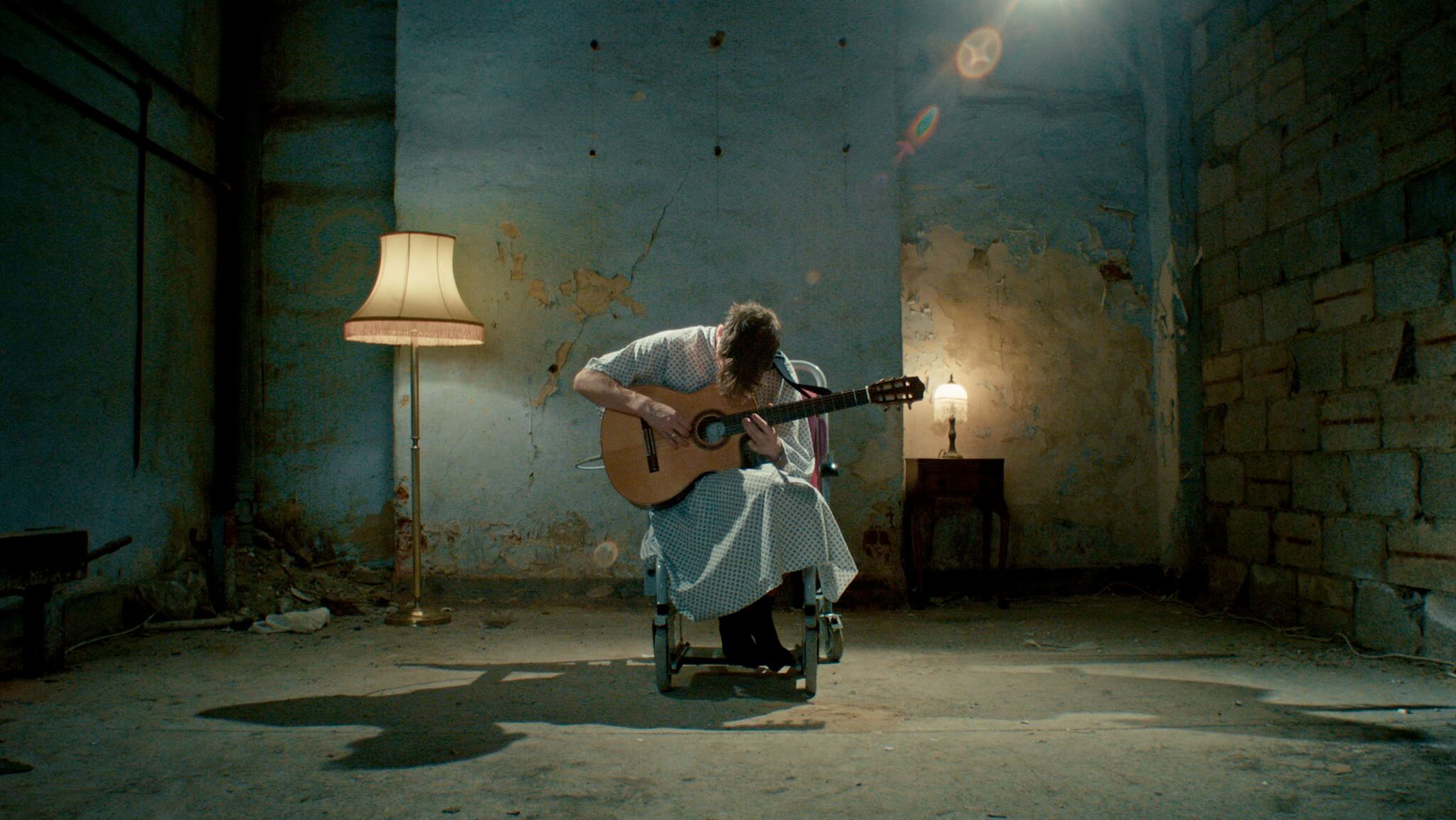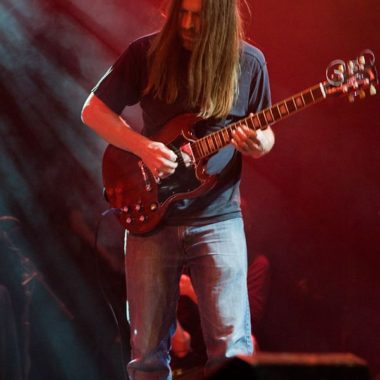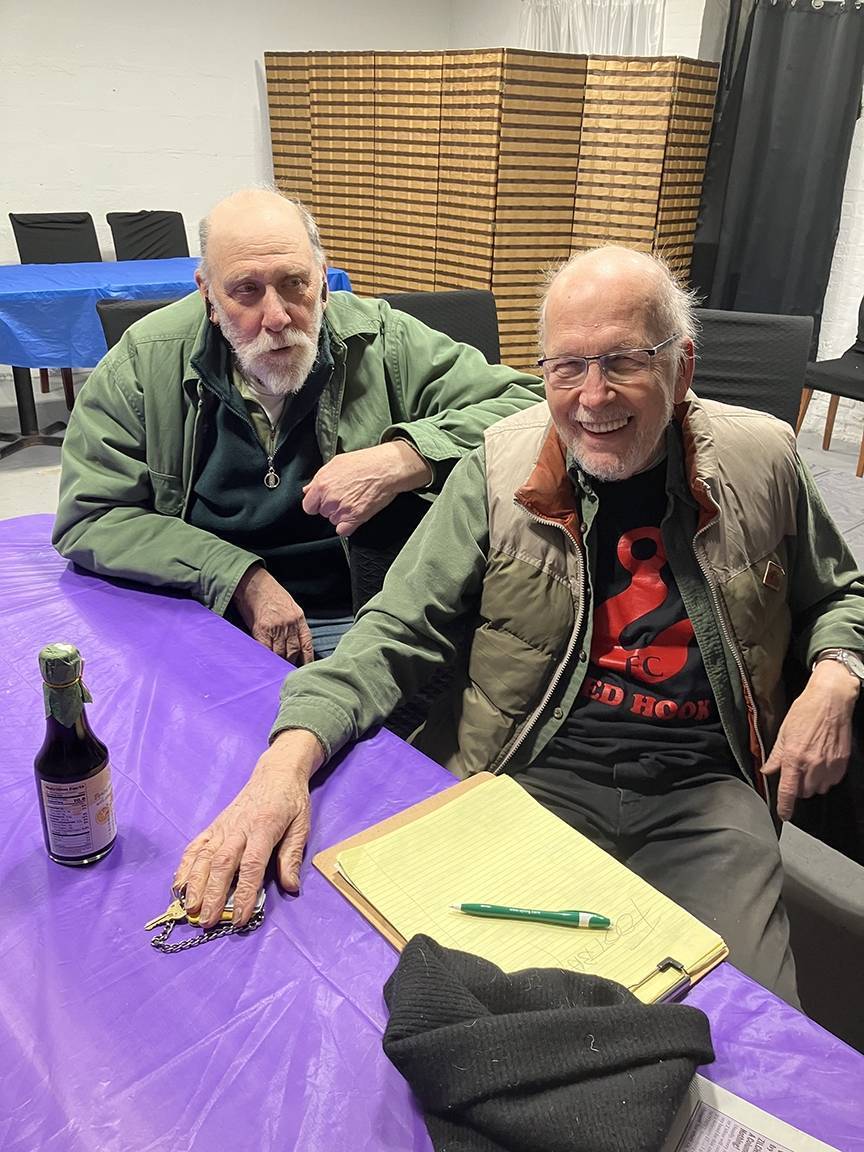Ren’s virtual genius. The death of the music industry is both often reported and greatly exaggerated, but what mystifies me is how seemingly popular artists are making money. It’s not through streaming, that’s well established, but with little for sale it’s hard to see just how the income comes in. Take the at least occasionally brilliant singer Raury. His song “God’s Whisper,” truly great on its own, provided an amazing climax to Andrea Arnold’s American Honey and has been used in two other movies and a Netflix series. After his first record, he walked away from his contract with Columbia and has since three released self-produced albums as free downloads. Are licensing fees enough to live off? I honestly don’t know.
Another artist with no visible means of support is the British singer/guitarist Ren, who’s been racking up YouTube plays by the millions in recent months. Like Raury, Ren incorporates rap, acoustic guitar and deft songwriting into dizzying pastiches and puts them to cinematic video clips. Near the end of the 9-minute video for “Hi Ren,” he puts down his guitar (he’s also a remarkable guitarist) and addresses the camera: “When I was 17 years old, I shouted out into an empty room, into a blank canvas, that I would defeat the forces of evil, and for the next 10 years of my life, I suffered the consequences, with auto-immunity, illness and psychosis.” Those 10 years were spent confined to his bedroom, developing a deeply impactful, personal style and a personal philosophy about being stuck in the world. “Sick Boi” strikes back more directly at a society that will punish you for not fitting in even while its slowly killing you. The three-part “The Tale of Jenny and Screech” is a dramatic and powerful story of domestic abuse.
Ren comes with all the braggadocio of a rapper and the self-importance of a social media influencer. But he’s also a ridiculous talent and actually has a lot to say. He has a couple of older albums on Bandcamp but his recent, and stronger, work is filmed and recorded live on set. The film and video are of a piece. I play his videos over and over, but I’m not sure I want a record. So how does he make his money? It’s not clear that he does. Ren has been under the care of a specialist in Canada trying to reverse the long-term effects of misdiagnosed Lyme disease. A Gofundme page (to which I contributed) has raised over $130,000 for his care, well beyond the initial goal. His voice is too vital to be lost yet. If you’ve not seen his videos, check them out and see if you agree.
David Bowie dislodged. Philip Glass’s first and fourth symphonies were slow to grow on me. Symphony No. 1 (Low) from 1992 and Symphony No. 4 (“Heroes”) from 1996 each used themes from the David Bowie albums named in the titles as starting points for orchestral works. Both of those LP’s have second sides of atmospheric, largely instrumental tracks that didn’t sound like Glass, but one can see the appeal. Those two albums are also the first two of what is commonly referred to as Bowie’s “Berlin trilogy.” On January, 10, 2019, Glass completed his trilogy, premiering Symphony No. 12 (Lodger) in Los Angeles, on the third anniversary of Bowie’s death.
Lodger made for an odd conclusion to the Bowie’s trilogy. It didn’t follow the instrumental second side concept and was actually recorded between Switzerland and New York City. But it did retain the Bowie / Brian Eno / Tony Visconti team, which is the key. It makes for an odd conclusion to Glass’s trilogy as well. Faced with a set of 10 songs to deal with, Glass dropped a few and cut the music from the rest, setting Bowie’s lyrics to—or more aptly against—his own rich, repeating orchestral lines. From the outset, it’s an uncomfortable fit. It’s hard not to imagine Glass going backwards in time, to Bowie’s 1976 album Station to Station, or forward to the swansong Blackstar (released days before Bowie’s death) to find more appropriate material. If wishes were fishes, Glass’s symphony might not have ended up a fish out of water.
Symphony No. 12 received its New York premiere on February 8 at Carnegie Hall, performed by Filharmonie Brno with Angelique Kidjo handling the vocals, as she did on the recording and at the L.A. premiere. She was resplendent in gold, outshining the leafing of the famous stage, and delivered the material masterfully, in an authoritative and monochromatic voice, her Benin accent underscoring the world-weariness of Bowie’s original album. But it’s difficult to find an impetus beyond sentiment. Kidjo could have been given selections from Bowles’ The Sheltering Sky or Burroughs’ Naked Lunch, or Mother Goose for that matter, and it would have worked just as well. As with his popular 1986 album Songs From Liquid Days, with lyrics contributed by Laurie Anderson, David Byrne, Suzanne Vega and others, Symphony No. 12 feels as if Glass wasn’t quite sure what to do with the words. The most successful of the Lodger treatments is “Red Sails,” which closes the suite. It’s one of the least melodic songs on the original album, which likely has something to do with it, but it’s also the one where Glass gives the text enough room to breathe. “Warszawa” came to be the track I revisit most from the first two symphonies. “Red Sails,” I suspect, will be the Lodger reworking that most calls me back.
Gina plays her bass loud. On repeat at home of late has been Gina Birch’s I Play My Bass Loud, (out Feb. 23 on CD, LP and download from Third Man Records). Birch was an original member of the Raincoats—and still is when they reconvene every so often—back in the 1970’s, when the London music scene had been laid flat by punk and anything was possible in its immediate aftermath. Forty-some years later, she’s released her first solo album, and it’s solid and smart, punkish and dubby, fresh, confident and casually in-your-face. Trainspotters and name-droppers take note: Youth produced and Thurston Moore guests. But Birch is the reason to get it.
Filharmonie Brno at Carnegie Hall. The credit is Pete Checchia.












One Comment
Ren wrote a book on that very subject.
It’s called Make Money in Music Without Being a Star.
Also; if you haven’t already, you should check out his busking gigs with his band The Big Push.